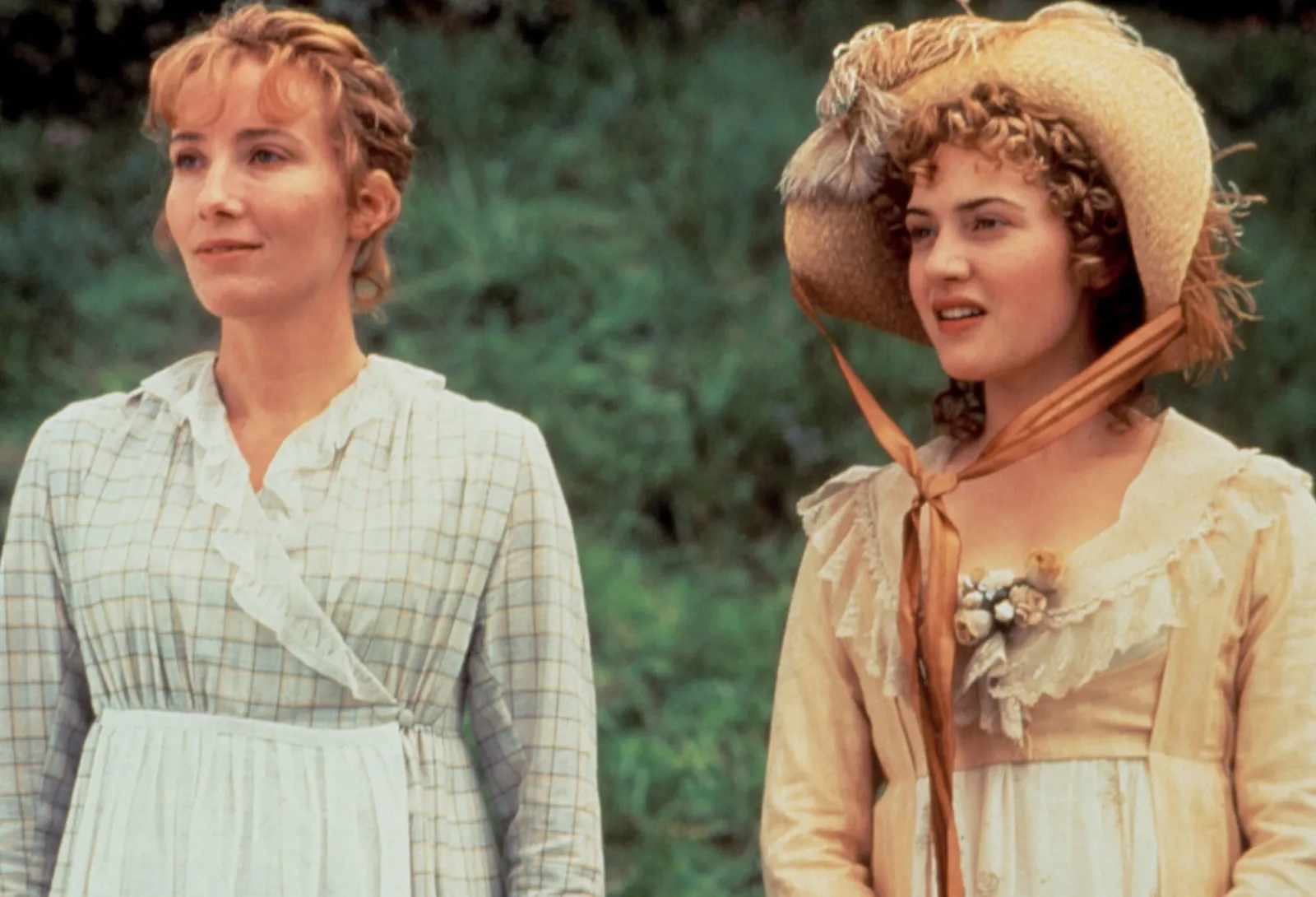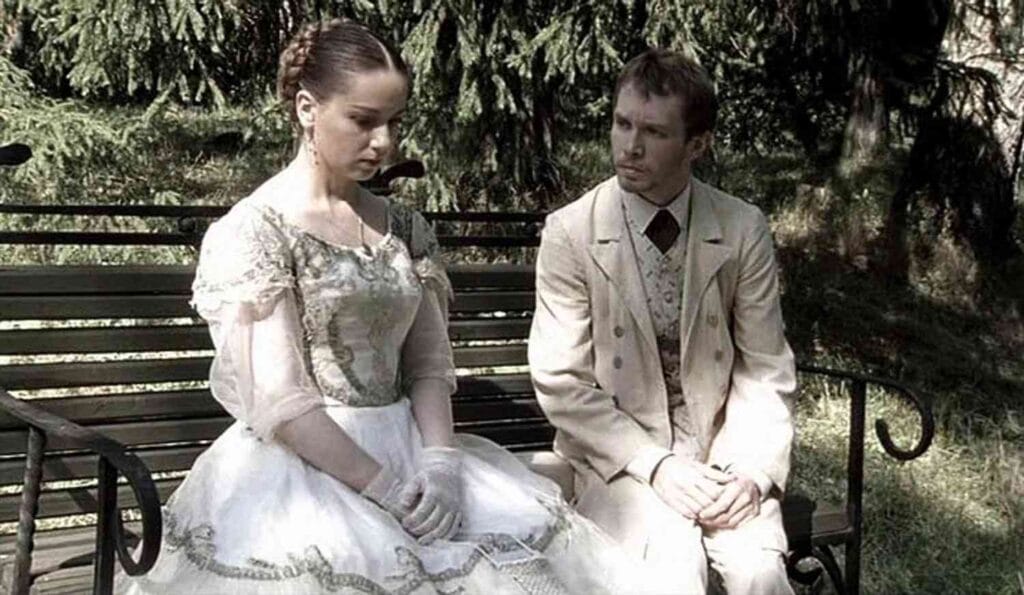Sense and Sensibility by Jane Austen
Sense and Sensibility is not a grand story filled with action or mystery. It is quiet, gentle, and deeply human. Jane Austen invites us into the private world of two sisters, Elinor and Marianne Dashwood, as they move through grief, love, disappointment, and growth. The story is about how people carry pain and still keep going, how hearts break and heal, and how different ways of feeling can still lead to the same kind of understanding.
A Sudden Loss and a New Beginning
The Dashwood family’s world changes in a single moment. Mr. Dashwood, the father, dies. His estate, Norland Park, by law, goes to his son from a previous marriage, John Dashwood. Before his death, Mr. Dashwood had asked John to look after his stepmother and her three daughters—Elinor, Marianne, and Margaret. John agrees. But once their father is gone, and under the influence of his cold-hearted wife Fanny, John does little to help them.
With very little money and no place to stay, the Dashwood women are forced to leave the only home they’ve known. They move from their grand estate to a small, modest cottage in the countryside of Devonshire. The cottage is given to them by a distant relative, Sir John Middleton. The life ahead is uncertain, and their hearts are still full of grief.

Elinor, the eldest sister, carries the weight of responsibility. She is calm and thoughtful. She does not show her pain easily. Before they left Norland, Elinor had developed a quiet, sincere affection for Edward Ferrars, Fanny’s brother. Edward is kind but shy, and their connection grows slowly and silently. They both care deeply for each other, but they never speak the words aloud. Then Elinor is pulled away, and no promises are made.
Marianne, on the other hand, is all emotion. She loves poetry and music, believes in deep feelings and soulmates, and often lets her heart lead the way. For her, love should be wild and consuming. But life soon begins to show her something different.
A Love That Comes Too Fast and Fades Too Soon
In their new home, the Dashwoods meet many new people. Among them is Colonel Brandon, a gentle, quiet man who is older than Marianne but drawn to her all the same. He is not loud or exciting, but he carries a calm kindness that never fades. Marianne finds him boring. She cannot imagine loving a man like him.
Then comes John Willoughby.
He enters Marianne’s life like a storm. She slips and falls while out walking one day, and he lifts her in his arms and carries her home. He is young, handsome, lively, and full of charm. He loves everything Marianne loves—music, poetry, passion. Marianne falls in love quickly, completely. Everyone expects them to become engaged.
But nothing is said officially. And one day, without warning, Willoughby tells Marianne he has to leave for London. No reasons, no promises, just goodbye.
She writes to him again and again, but there are no replies. Her health and spirit begin to fade. The pain sits heavily in her chest, and still she waits. Until the day they finally meet again—at a party in London.
Willoughby is cold. Distant. He barely speaks to her. A few days later, she receives a letter from him. It says everything is over. He is engaged to someone else. A wealthy woman.
Marianne is broken. Her dream of love is crushed. She cannot understand how someone who once looked at her with such warmth could turn so cold. Elinor holds her sister close, but she too is quietly suffering.
In that same city, Elinor learns something she had not expected. Edward Ferrars—the man she loves—has been secretly engaged for four years. To Lucy Steele, a woman full of sweet smiles but hard intentions. Lucy had hidden the engagement from everyone, but when she hears that Elinor may care for Edward, she reveals it, with quiet cruelty.
Elinor’s heart is heavy, but she does not show it. She keeps her pain to herself, letting Marianne lean on her, never asking for anything in return.
Edward is torn. He does not love Lucy anymore, but he is a man of honor. He will not break the engagement, even if it costs him his family’s fortune.
And still, Elinor waits.
Small Hopes, Gentle Turns
Time passes. The sisters leave London and return to the countryside. Marianne’s health has grown worse. Her heartbreak has taken a toll on her body. On their journey, she becomes very ill. Elinor fears the worst. She watches over her day and night, holding onto hope.
Marianne survives. And something in her has changed.
She begins to see her past differently. She sees how her quick emotions had blinded her. How she ignored the quiet care of Colonel Brandon. How she gave all her love to a man who never deserved it.
Slowly, she begins to understand what Elinor always knew—that feelings must be true, but also steady. That love is not just in words or flowers, but in patience, loyalty, and time.
Willoughby’s story is revealed. He had seduced a young girl and left her, and that girl was under Colonel Brandon’s protection. Brandon knew Willoughby’s nature and tried to warn others. When Willoughby’s wealthy relative learned of the scandal, he was disinherited. Out of desperation, he chose to marry for money. He tells Elinor that he truly loved Marianne, but it was too late. His choices had already destroyed what could have been.
Elinor listens. She feels sorry for him, but she knows regret does not undo harm. She tells him nothing he says now will change what he did.
Back in their cottage, news arrives that Edward Ferrars has been cast out by his family. They are angry because he refused to end his engagement with Lucy, even though they promised him wealth if he did.
Then, a surprise. Lucy Steele has married—Edward’s brother, Robert Ferrars.
Edward is finally free.
He comes to the cottage. Elinor sees him, pale and nervous. He tells her the news. She cannot believe it at first. She cries—not because she is weak, but because for once, she doesn’t have to hold her feelings in. Edward proposes. And this time, there is nothing in the way.
A short time later, Marianne also opens her heart. Colonel Brandon has been by her side through every sadness, never asking for anything. She begins to understand his love, not as something boring, but as something solid and real. They marry, not in a rush, not in a whirlwind, but with quiet understanding.
Mrs. Dashwood is at peace, watching her daughters find happiness in their own ways.
Elinor and Edward live simply, without wealth, but with warmth and laughter. Marianne and Brandon build a life filled with music, walks, and calm affection. And little Margaret, the youngest, begins to grow into a thoughtful young woman, shaped by the strength of the sisters who came before her.
A Story Without Noise, But Full of Feeling
Sense and Sensibility ends not with a grand celebration, but with a quiet peace. Austen does not write about heroes or dramatic endings. She writes about ordinary people, feeling ordinary pain, and finding hope in the middle of it. Elinor and Marianne are not perfect. They make mistakes, they feel too much or too little, they struggle with pride, silence, and shame.
But they learn.
They grow.
And in that quiet journey, something beautiful is born.
This is a story about how hearts mend not all at once, but slowly. How love, real love, often arrives softly, like the sound of a friend sitting beside you. And how sometimes, the strongest people are the ones who carry their grief in silence, still choosing kindness, again and again.
If you’re looking for a well-structured explanation in Hindi, I recommend watching the video summary of Sense and Sensibility by Jane Austen on Study IQ’s YouTube channel.
Give it a watch—you’ll enjoy how simply and beautifully they’ve explained everything.
Explore more summaries on our blog
Great Expectations by Charles Dickens
The Mayor of Casterbridge by Thomas Hardy



I’ve read a few good stuff here. Certainly worth bookmarking for revisiting. I surprise how a lot effort you put to make the sort of excellent informative website.